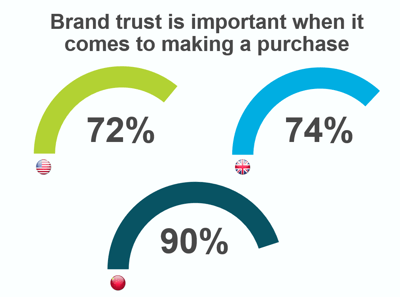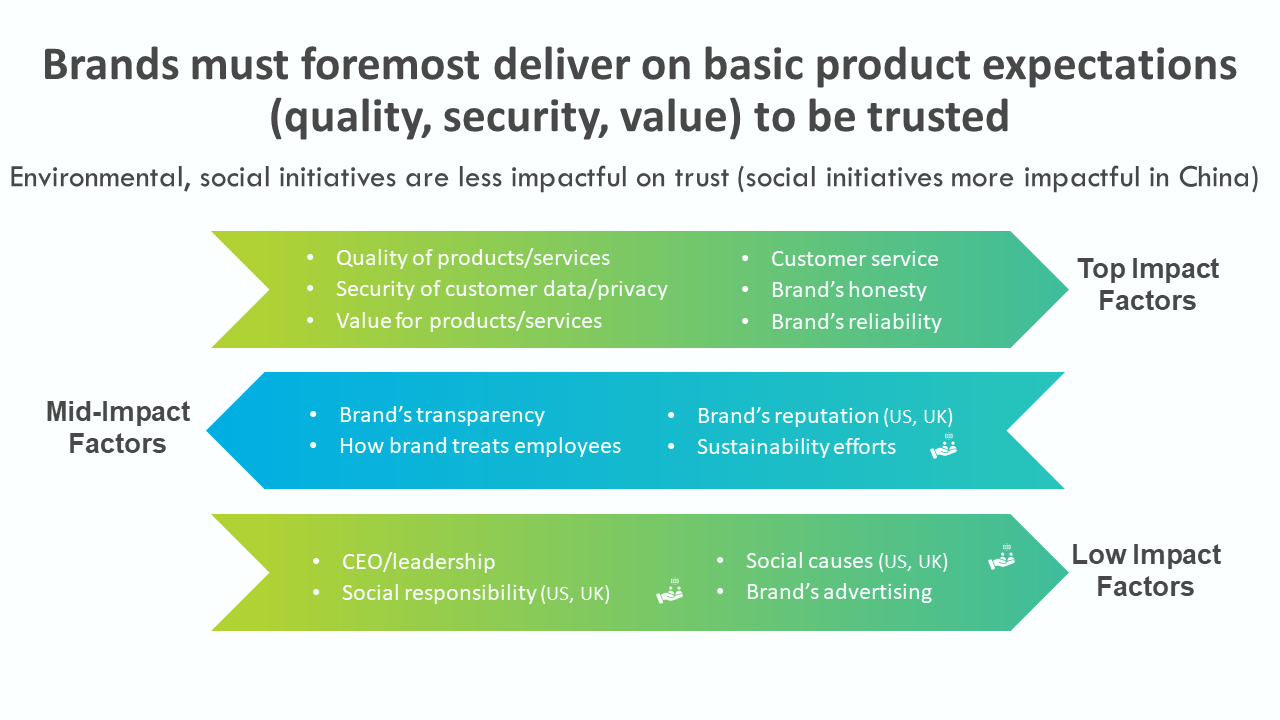
Over 70% of consumers in the US and UK, and 90% in China, say that trusting a brand is indispensable when making a purchase. While this may seem like common sense, what brand trust is, how to cultivate it, maintain it, and possibly regain it, is more nebulous. To understand this problem, we talked to consumers in the US, UK, and Chinese markets about brand trust and presented our findings in a recent webinar.

Humans have an evolutionary need for direct contact and personal connections, largely facilitated through actions and imagery. With the shift from in-person to online work and commerce, the chances to facilitate these connections has been fundamentally altered, and the importance of consumer trust in brand relationships has been heightened. Commerce at a distance means that consumers rely on trust that what they order will meet their expectations.
The consequences of breaking consumer trust indicate just how devastating it can be for business. Our research shows that developing trust is multi-dimensional, and brands need to build trust to successfully establish a relationship with consumers.
 A few aspects of trust are consistent across the three markets, notably product value and quality, honesty and reliability, and customer service and security. Successfully communicating these attributes to a brand’s base will vary, depending on the market and brand-specific factors.
A few aspects of trust are consistent across the three markets, notably product value and quality, honesty and reliability, and customer service and security. Successfully communicating these attributes to a brand’s base will vary, depending on the market and brand-specific factors.
While our research illustrates the importance of trust for brands, it is up to individual brands to build and maintain trust. Consumer insights are indispensable in helping brands tailor their approach to building trust. For more, see our article on Greenbook, or watch the webinar.